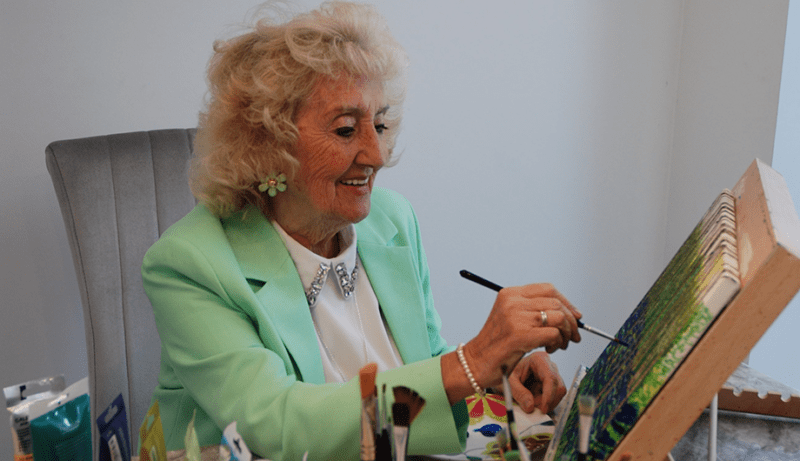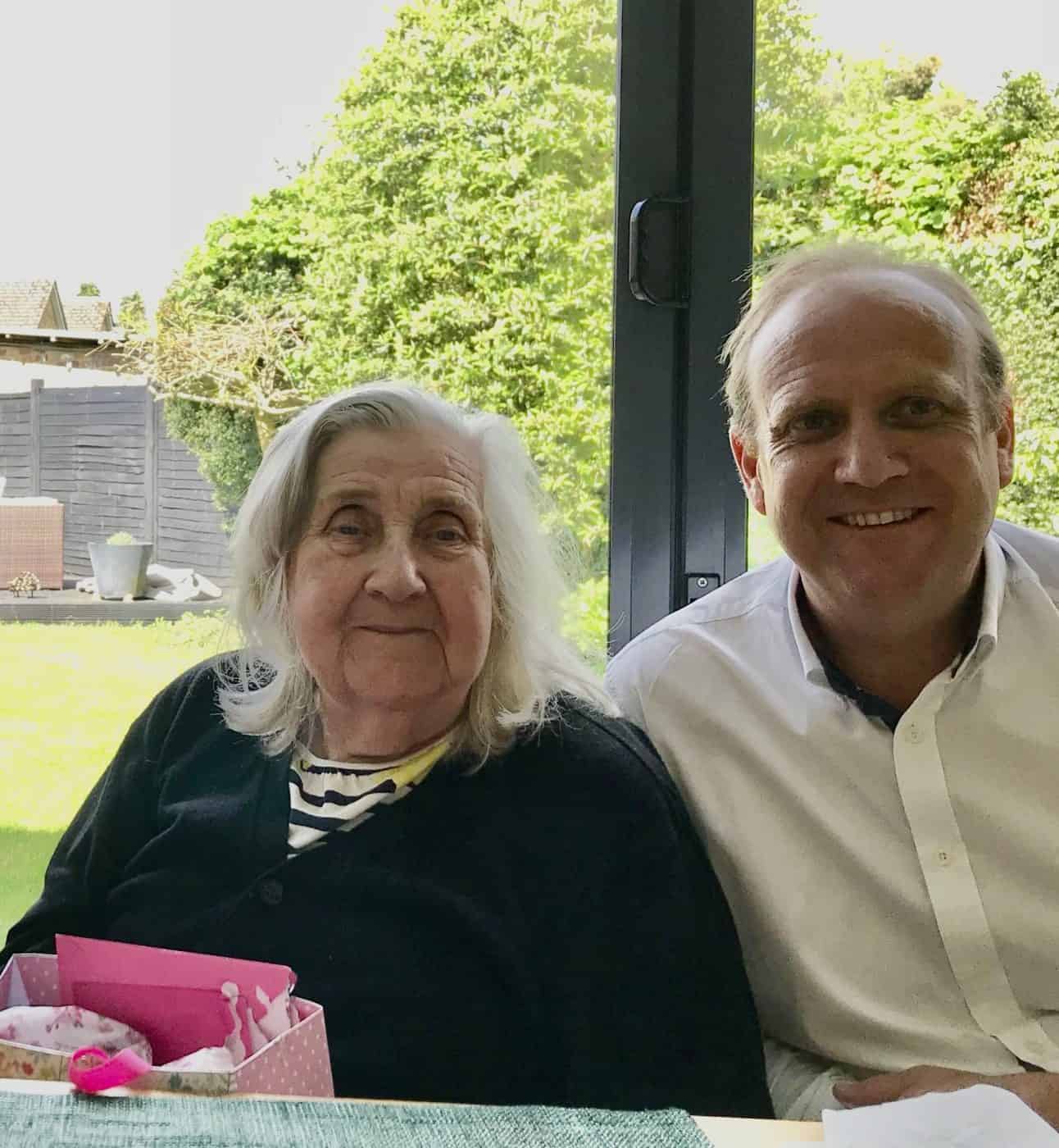
“The lack of recognition of unpaid carers is frustrating”
Will shares how his mum's diagnosis impacted the family and highlights the importance of advocating for young carers.
Alzheimer’s disease is the most common form of dementia. It is caused by a build-up of proteins in the brain which affect how the brain cells transmit messages.
As time passes, more and more brain cells are damaged, leading to worsening symptoms.
Because some of the changes associated with Alzheimer’s disease are similar to those of diabetes, some people refer to it as ‘type 3 diabetes’ but this is not an official diagnosis.
Age is the biggest risk factor for developing Alzheimer’s disease. It affects one in 14 people over the age of 65, and one in six people over the age of 80.
However, it can also affect people under the age of 65 (this is known as young onset dementia).
Other risk factors include:
Very rarely, Alzheimer’s disease is caused by a genetic fault that runs in families – but this accounts for fewer than 1% of all people diagnosed with the condition.
In the early stages, the symptoms of Alzheimer’s disease are often very mild. The most noticeable symptom is usually memory loss. The person might:
Other early symptoms may include:
In the middle stages, symptoms may include:
In the late stages, new symptoms may develop including:
It is important to see the GP if you notice signs of Alzheimer’s disease in yourself or a family member.
First, the GP will try to rule out any underlying physical or mental causes of the symptoms – many of which can be treated – such as:
The GP will ask about the person’s symptoms, when they started, how they affect their daily life, and their family medical history.
It is a good idea to keep a record of symptoms for a few weeks to show the GP.
It is also helpful for a family member or friend to go to the appointment with the person so they can talk about any changes they have seen.
The GP is likely to carry out a short memory and concentration test. This may include:
The GP should also arrange blood tests, an ECG (a check of heart rhythm) and a head scan.
If other causes of the person’s symptoms are ruled out, the GP should refer them to a specialist memory clinic for more detailed assessments and further scans such as an MRI or CT scan to look for changes in the brain.
It may take several appointments and tests over a number of months to get a diagnosis of Alzheimer’s disease.
Receiving a diagnosis of Alzheimer’s disease can be a relief for some people, as they have an explanation for what is happening to them and can access the support they need. For others, it can be upsetting and overwhelming.
There is currently no cure for Alzheimer’s disease. However, for some people, medication can improve the symptoms and slow its progression.
The main medications for Alzheimer’s disease are donepezil, rivastigmine and galantamine, but they are only effective in the early to middle stages.
Another medication, called memantine, may be prescribed for moderate to severe Alzheimer’s disease, or if the person cannot tolerate the other treatments.
The person’s specialist will monitor them as they get used to the medication. They will look for signs that it is working and watch for side effects.
Medication is not suitable for all people with Alzheimer’s disease – for example, people with heart problems may not be able to take it.
Cognitive stimulation therapy (CST): a programme of activities to improve memory, language skills and problem-solving. It often takes place in a group. The memory clinic can tell you if this is offered in your area.
Cognitive rehabilitation: this involves working with a specialist – usually an occupational therapist – to achieve specific tasks like using a mobile phone or cooking a meal. The aim is to get the parts of the brain that still work well to help the parts that do not.
Reminiscence and life story work: these activities focus on skills, achievements and memories, and can improve mood and wellbeing.
Reminiscence work involves the person talking to a family member, friend or professional about their past, often using prompts such as photos, music or favourite possessions.
Life story work involves compiling a record of the person’s past and present life. It helps carers and other professionals get to know more about them so they can support them better. You can use our life story template as a guide.
The misconceptions about getting a diagnosis of Alzheimer’s disease are:
These tips may make living with Alzheimer’s disease easier.
To speak to a dementia specialist Admiral Nurse about Alzheimer’s disease or any other aspect of dementia, please call our Dementia Helpline on 0800 888 6678 (Monday-Friday 9am-9pm, Saturday and Sunday 9am-5pm), email helpline@dementiauk.org or you can book a phone or video call appointment with an Admiral Nurse.
Our virtual clinics give you the chance to discuss any questions or concerns with a dementia specialist Admiral Nurse by phone or video call, at a time that suits you.

Will shares how his mum's diagnosis impacted the family and highlights the importance of advocating for young carers.

Since being diagnosed with Alzheimer’s disease in 2019, Sylvia has found a new purpose in expressing her feelings through painting.

When Steve’s mum, who had dementia, was hospitalised after a fall, Steve turned to Dementia UK’s Helpline for support.